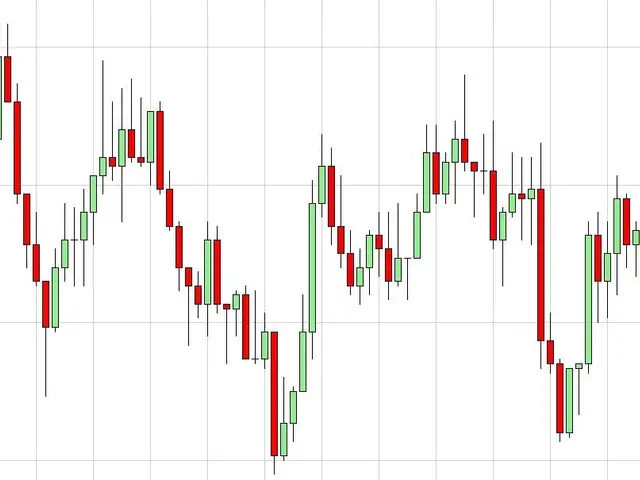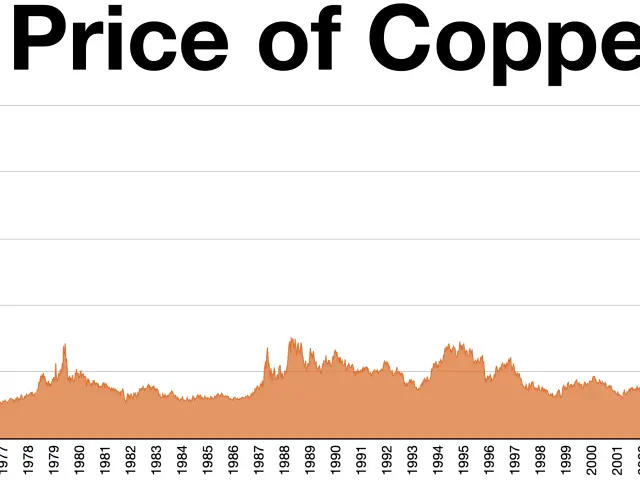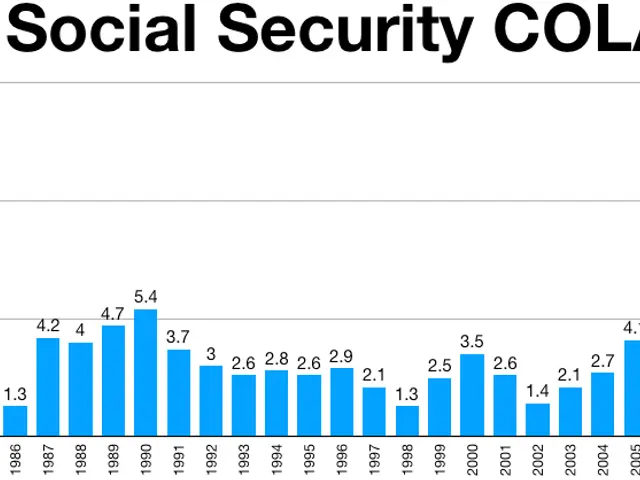Eastern women's retirement benefits average €357 more than their counterparts in the West.
In a startling revelation, a joint study by the Prognos Institute and the German Insurance Association (GDV) has highlighted a significant pension income disparity between men and women across Germany. The research indicates that on average, women in the east receive 357 euros more in pension than their counterparts in the west, with this gap being even wider for women in some regions.
In eastern German states, the average woman receives more than 1,000 euros per month in pension, with an average of 1,218 euros. However, in western German states, the average woman receives less than 1,000 euros per month in pension. This disparity can be attributed to several key factors, predominantly related to work tenure, earnings, and gender inequality in the labor market.
Men, generally, have longer work tenures and higher earnings, leading to higher pension benefits. This is because men more frequently work full-time without career interruptions, resulting in more pension points accumulated over their working years. In contrast, women often have shorter work tenures and lower earnings due to part-time work and career breaks related to childcare duties.
Women more frequently engage in part-time work and take career breaks for family responsibilities, which reduces their pension entitlements compared to their male counterparts. Although the German social insurance system awards additional pension points for raising children, these do not fully compensate for the income and work tenure disparities.
There is substantial gender inequality in wealth, with women generally owning less wealth than men. This economic disparity affects their ability to supplement their pensions with other income sources. Gender roles in the labor market, including limited access to full-time employment and better-paying jobs, further exacerbate the pension income gap.
While the division between East and West Germany affects pensions due to historical and economic differences, the primary factor remains gender-based disparities in work and earnings patterns. However, regional differences in living costs and employment opportunities can indirectly influence pension income security.
The German pension system is primarily based on contributions from earnings, which means that past earnings and work experience are crucial determinants of pension amounts. This system inherently favors those with higher and more consistent earnings, typically men.
Intriguingly, the gap between men's pensions in eastern and western German states is now minimal. Men in the old states receive an average pension of 1,416 euros per month, while their counterparts in western states receive an average of 1,430 euros per month.
However, the pension gap between women in the east and west remains substantial. In fact, women in Potsdam, Germany, receive the highest average monthly pension nationwide, at 1,314 euros, while women in the Rhineland-Palatinate Eifel district of Bitburg-Prüm receive the lowest average monthly pension nationwide, at 668 euros.
The large pension gap between women in the east and west is due to more women in the old federal states taking longer career breaks due to family responsibilities. Consequently, Moritz Schumann, deputy CEO of the GDV, has pointed out that this results in women being financially worse off in old age than men in the old states.
Interestingly, men in the old states, on average, receive a pension that is two-thirds higher than women. Moreover, male pensioners in the Ruhr area have a higher average pension than women in Brandenburg, Saxony, or Mecklenburg-Western Pomerania. Nationwide, male pensioners in the Ruhr area are at the top, with Bottrop leading the way at an average of 1,686 euros per month.
In conclusion, the key factors contributing to the difference in pension income between men and women in Germany are primarily related to work tenure, earnings, and gender inequality in the labor market, rather than regional differences per se. The study underscores the urgent need for policies aimed at addressing these disparities and ensuring a more equitable pension system for all Germans.
- In spite of the higher average pension received by women in eastern German states, there remains a significant wealth disparity between women and men, as women generally own less wealth than their male counterparts in the realm of personal finance and wealth management.
- Given that women's pension income often falls short due to factors such as shorter work tenures and lower earnings, it is essential to implement policies focused on addressing gender-based disparities in order to create a more equitable and fair personal-finance and wealth-management landscape for all individuals.






